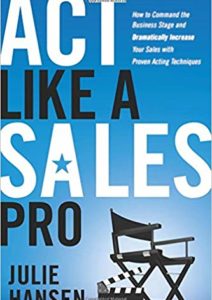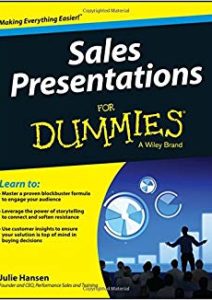You can’t blame today’s buyers for being a bit skeptical. A history of vendors making similar claims, over-promising and under-delivering could make a skeptic out of anyone!
The courtroom is a great place to understand how to win over one of the most skeptical audiences in the world: jurors. Trial lawyers have been applying proven techniques in this area for many years with great success. Here are four techniques that can help you win over skeptical buyers in your presentation or meeting.
4 Courtroom techniques for winning over skeptical buyers
1) Make your case early
Trial lawyers spend more time preparing and practicing their opening statement than any other part of their argument. Why? Research shows that most jurors arrive at their verdict during or immediately after opening statements. The rest of the trial is spent justifying their initial decision.
In the same way your buyer is forming their decision the moment you start your presentation. To ensure that you gain a positive first impression, take the time to plan and practice an opening that grabs your buyer’s attention and gives them a quick preview of key points or outcomes.
For example: Today we’re going to show you how eliminating many of the manual processes in your onboarding program can reduce operational costs and get salespeople contributing to revenue 30% faster.
2)Do your Discovery
Successful trial lawyers make it a priority to understand what makes jurors tick, then they craft a message around their findings. Law firms spend a lot of money researching jurors’ backgrounds, experience, and beliefs in order to develop their strategy. By trial time, the lawyer is well-prepared to present a tailored and persuasive case.
In sales, you also need a good understanding of your buyer’s needs, situations, and goals well before your presentation or meeting in order to deliver a message that resonates. Schedule discovery calls with key decision makers well in advance of your meeting. Use your time in those calls to gain a better understanding of who will be in the meeting as well as build rapport.
3)You are always “on stage”
A trial lawyer knows that the minute she steps into the courtroom, she is on stage. Whether questioning a witness, talking to a judge, or consulting with a peer, the jury is always watching. Red flags go off in a juror’s mind when lawyers are inconsistent in their words or behavior.
In sales, you are also on stage whenever you are in front of a potential customer. Your prospect is observing everything from how you handle questions, to how you treat the receptionist or handle a tricky technology issue. Be on time, treat everyone with respect, and remain calm if plans change or problems arise.
4) Close on emotions
Once the jury goes behind closed doors to make their decision, they are outside of the lawyer’s influence. That’s why closing statements must be strong and memorable. Emotions play a major role in decision making. Good trial lawyers leverage this fact by appealing to the jurors’ emotions in their closing statement.
Like a closed jury, salespeople are often not present when buying decisions are made either. Make the closing of your presentation more impactful by including an emotional element. Recall why your prospect needs to change. Restate what’s at stake for your buyer and highlight the difference between their current and future state.
For example: The onboarding process is often an employee’s first experience with your company. A negative experience not only reduces your onboarding’s effectiveness, but it also results in unhappy employees and higher turnover. We help you create a positive first experience and get salespeople out contributing to making their numbers faster – which makes everyone happy!
Getting your skeptical buyer to reach the right verdict isn’t always easy, but following these proven trial tactics will set you up for greater success!
Pipeliner CRM empowers you to win over skeptical buyers. Get your free trial of Pipeliner CRM now.













Comments